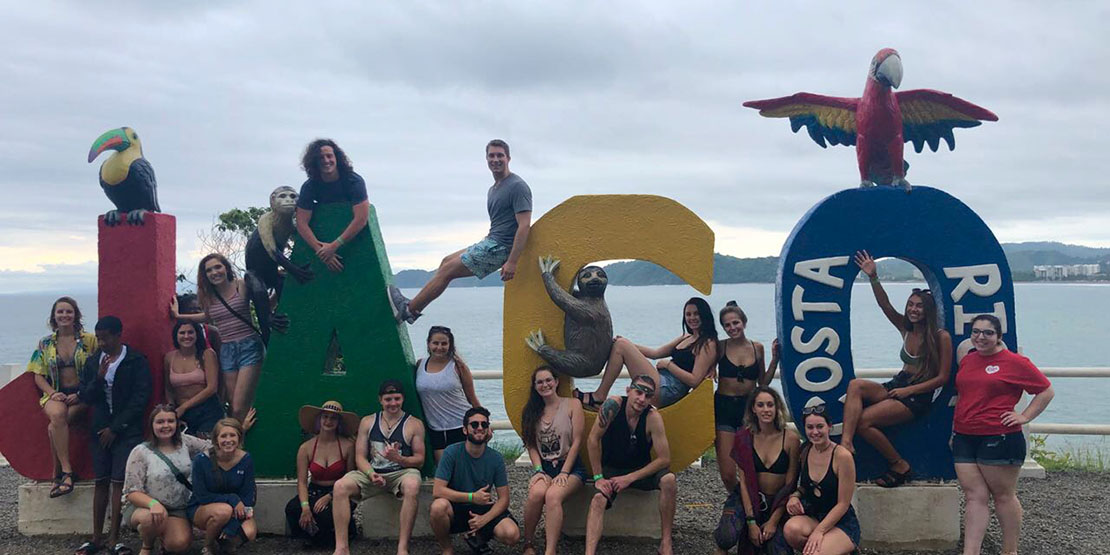For any person, but especially for young people, International travel can be a life-changing experience. That is why at William Woods, traveling to other countries to study or just to visit and experience a foreign culture plays a pivotal role in WWU’s philosophy of educating the total person.
Students at The Woods have long benefitted from the university’s unique Woods Around The World program, which has been taking students, faculty and staff on educational trips to all seven of the Earth’s continents for the past ten years. The tenth anniversary of Woods Around The World in 2018 highlights one of the many educational advantages available to students that choose to attend William Woods, but it is by no means the only option open to students who desire a foreign experience during their time here.
Four William Woods students took just such an opportunity to travel internationally this past summer, illustrating some of the additional study abroad options available. Three of them did so through study abroad trips, while one of them chose a different kind of trip.
What was their top piece of advice to other students who want to travel abroad? “Do it,” was the response of all four students.
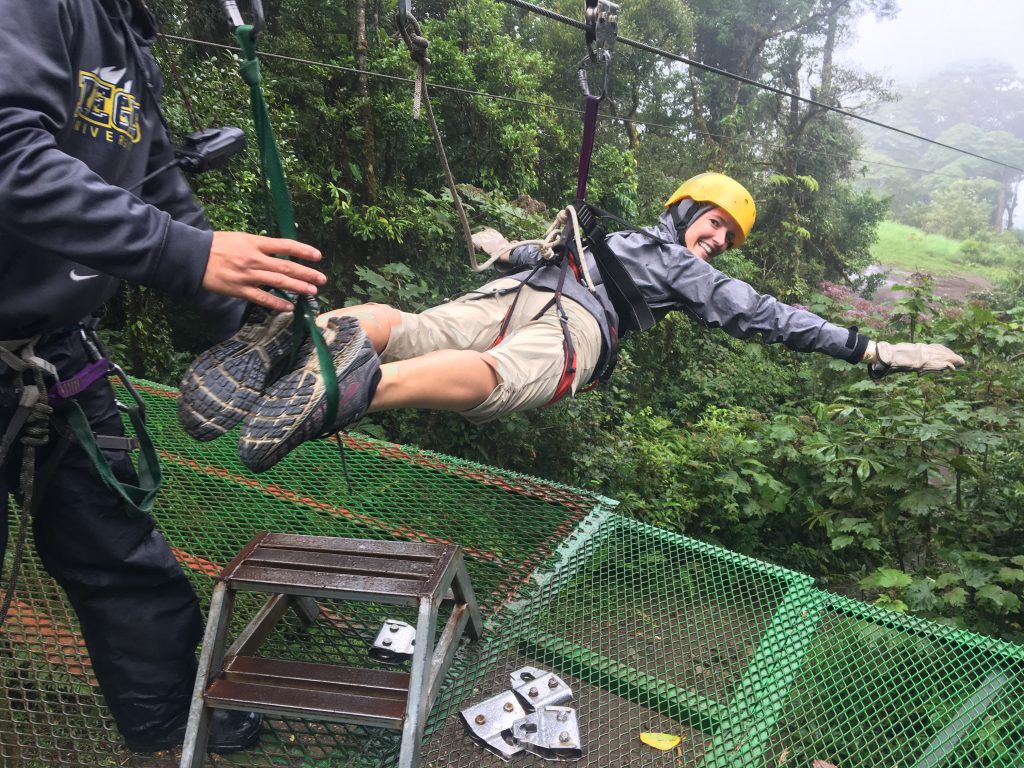
“Definitely take the chance. You can’t let money or fears of ‘will I fit in?’ or ‘will I be able to do the academics?’ hold you back,” said Olivia Imhoff ’19.
Imhoff traveled through CIS Abroad, a program William Woods affiliates with to offer study abroad experiences to students. Imhoff went to Costa Rica for five weeks, where in addition to studying, got to surf, relax in hot springs, zip line through tropical forests, observe the wildlife and take traditional dancing classes.
“I cannot say one adventure was better than the other.” Imhoff said of her experiences outside of the classroom. “It was having the freedom and independence to do anything that I wanted that was so exhilarating! I loved that I could walk downtown to shop vendors, chat with café goers, take a bus to the beach, mountains or forest or run off to practically any activity.”
The process for students to travel abroad is simple. First, students go to Amy Dittmer, Director of Career Services and Student Transition, who will have them fill out a William Woods study abroad application. They will then meet with the registrar, their advisor and student financial services to make sure they’re fully prepared academically and financially to travel abroad. When students bring that application back to Dittmer, she helps them pick an affiliate program that matches well with what they are trying to do and fill out the application for that organization. Then that particular study abroad organization takes over, with full-time staff to help the student make checklists and stay organized for their trip.
“I will live vicariously through them while they’re doing it,” Dittmer tells students. “I think it is an invaluable experience.
Her biggest advice is to plan ahead as much as possible. Often times the deadline to sign up for a trip is months before the trip starts and the more you plan in advance, the more time you have to figure out the financial aspect of it.
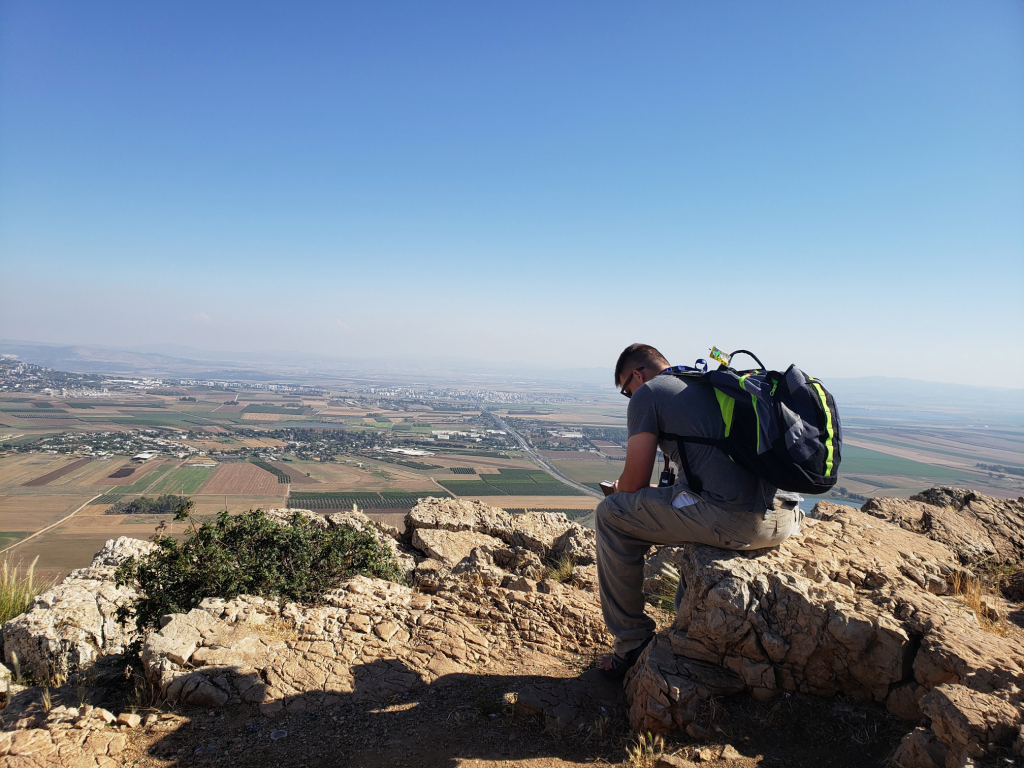
Nick Hartman ’20 doesn’t think you have to worry about finances too much though.
“You can find programs that you can travel overseas and get great accommodations for under $1000,” he said.
Hartman didn’t study abroad, but instead went on a spiritual trip to Israel through Passages Israel. Passages Israel is a group Hartman found through his own research that brings Christian college students to Israel at a discounted rate. Hartman was proud to say that he spent very little money on his travel abroad experience, but still got a full experience of spending 14 days traveling the entire country of Israel with a group of like-minded students.
“The Sea of Galilee was the most beautiful part of the country and I recall going down to the edge of the sea at 4:45 a.m. to watch the sunrise and pray. It was such a profound moment and we were in a beautiful hotel in a beautiful part of the country.” Hartman said of his experience in Israel. He also mentioned one of the most powerful experiences in Israel was standing on the border between the Gaza Strip and Israel, a town full of turmoil.
So what is studying abroad like? It depends on the country.
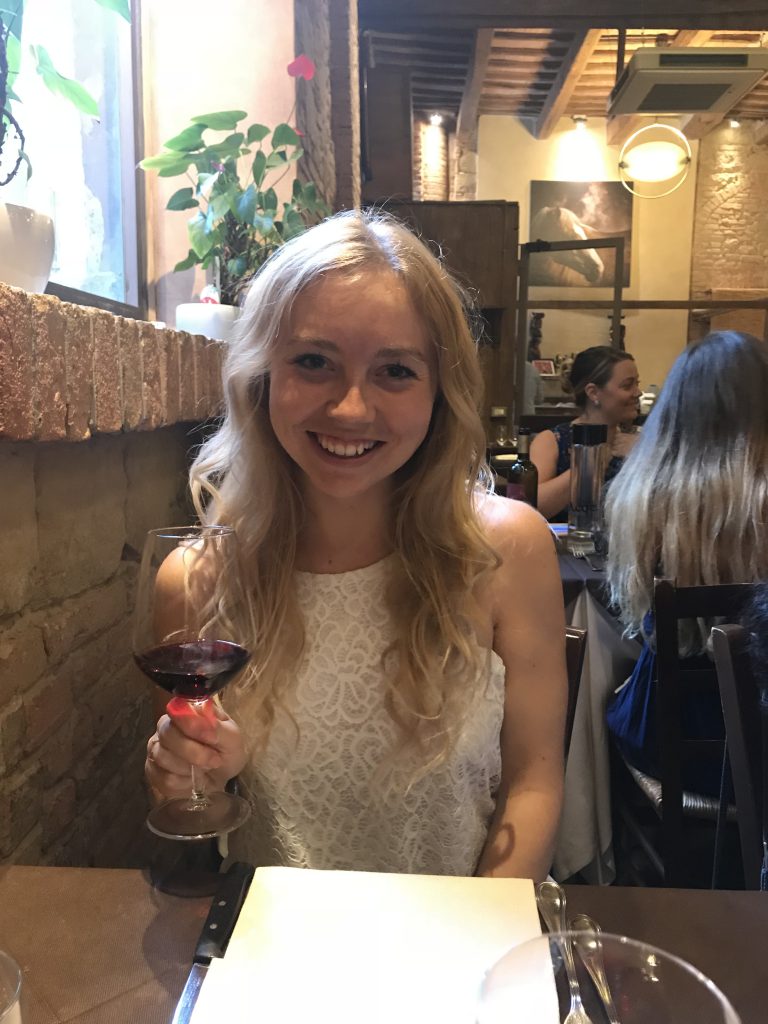 “Their study requirements are very intense, we were taking classes from 9 in the morning until 7 at night with a two-hour lunch break,” said Megan Brown ’19, who spent three weeks in Siena, Italy learning Italian Sign Language. “It was different from my college experience in the U.S., where you set a more relaxed class schedule.”
“Their study requirements are very intense, we were taking classes from 9 in the morning until 7 at night with a two-hour lunch break,” said Megan Brown ’19, who spent three weeks in Siena, Italy learning Italian Sign Language. “It was different from my college experience in the U.S., where you set a more relaxed class schedule.”
“Down there it was way more relaxed, when the professor said we’re going to have a ten minute break, it was probably a thirty minute break,” Imhoff said about her experience in Costa Rica, in contrast to Brown’s experience in Italy. “The learning was just as beneficial if not more beneficial,” she added, saying the laidback attitude took nothing away from her learning experience.
Studying abroad does bring its own set of unique challenges. For Jessica Jensen ’19, it was the language, which she thought she knew fairly well until she got there.
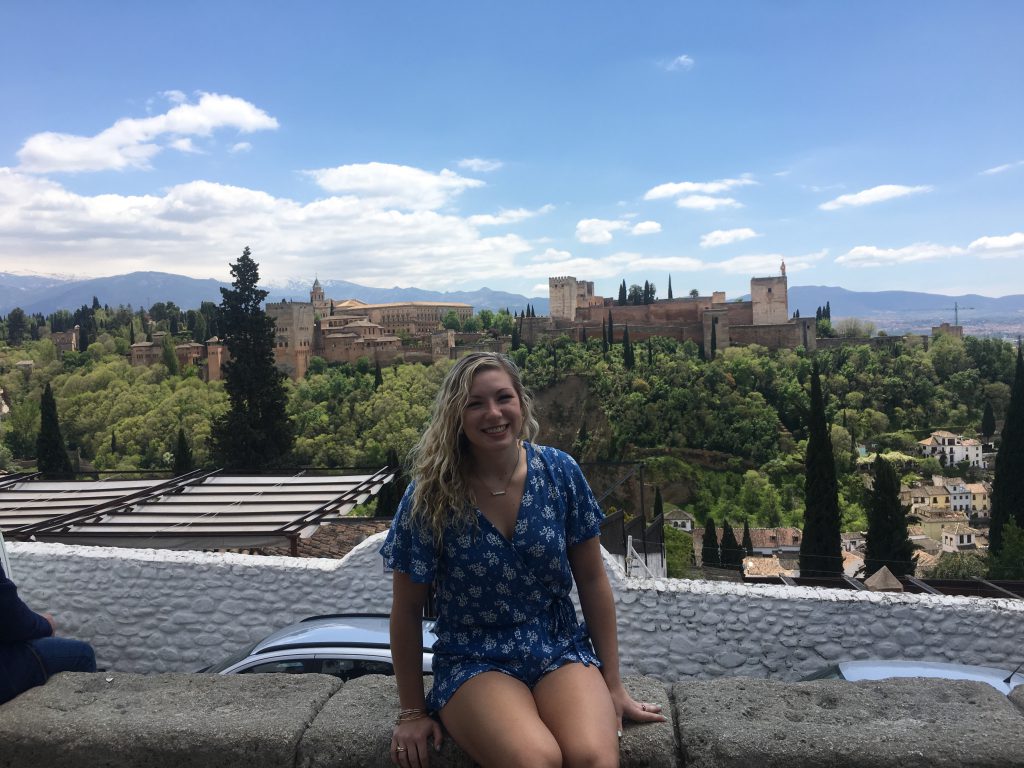
“You think you know a language until you actually go to the native country and have to use it to get around, she said. “It was very hard to communicate and get around, especially living with a Spanish family that doesn’t speak English,” Jensen said.
Jensen was in Spain for three months and traveled through AIFS, another affiliate organization of William Woods University. Her goal was to finish her Spanish minor and become fluent in the language.
All of our students had different takeaways from their trips, but all agreed that they wanted to travel abroad again and soon.
“From a Deaf Studies prospective, I realized that other countries are going through similar problems and situations government-wise that we are.” Brown said. “Both Italy and the U.S. don’t have Sign Language as an official language of the country.”
“The way of life,” Imhoff emphasized. “You saw that way of life in school with academics, you saw it in your host family and you saw it whenever we went out on the weekends.”
“I want to go back and I want to travel more,” Jensen said of her biggest takeaway. “I’ve got the travel bug.”
“With my faith being an important part of my life, it changed the way that I read the bible and read history and think about Israel,” Hartman said.

